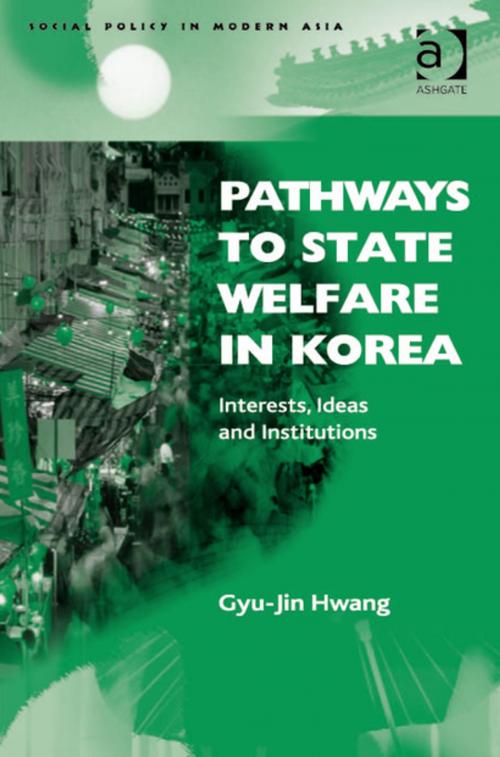Pathways to State Welfare in Korea
Interests, Ideas and Institutions
Nonfiction, Social & Cultural Studies, Political Science, Government, Social Policy| Author: | Gyu-Jin Hwang | ISBN: | 9781351912617 |
| Publisher: | Taylor and Francis | Publication: | March 2, 2017 |
| Imprint: | Routledge | Language: | English |
| Author: | Gyu-Jin Hwang |
| ISBN: | 9781351912617 |
| Publisher: | Taylor and Francis |
| Publication: | March 2, 2017 |
| Imprint: | Routledge |
| Language: | English |
Why has Korean social policy developed differently from that of other East Asian countries? While in many respects Korea can be compared with Taiwan, Hong Kong and Singapore, where economic development has been the chief priority of state action, Korea has also implemented extensive welfare reform, expanding its welfare provision even under recent conditions of economic downturn. Gyu-Jin Hwang traces the development of the Korean welfare state, providing a fascinating case study for observers of East Asian industrial growth and the public management of social risks. Arguing that the extension of state welfare presents a unique challenge to existing theoretical propositions underlying social policy development, he draws on detailed empirical analysis of key policy areas, namely public assistance, national pensions, health care and employment insurance. The book offers a definitive analysis of the development of Korean social policy programmes and the politics of implementing them. The book will be important reading for all those interested in comparative Social Policy and more specifically the development of Social Welfare in Asian countries.
Why has Korean social policy developed differently from that of other East Asian countries? While in many respects Korea can be compared with Taiwan, Hong Kong and Singapore, where economic development has been the chief priority of state action, Korea has also implemented extensive welfare reform, expanding its welfare provision even under recent conditions of economic downturn. Gyu-Jin Hwang traces the development of the Korean welfare state, providing a fascinating case study for observers of East Asian industrial growth and the public management of social risks. Arguing that the extension of state welfare presents a unique challenge to existing theoretical propositions underlying social policy development, he draws on detailed empirical analysis of key policy areas, namely public assistance, national pensions, health care and employment insurance. The book offers a definitive analysis of the development of Korean social policy programmes and the politics of implementing them. The book will be important reading for all those interested in comparative Social Policy and more specifically the development of Social Welfare in Asian countries.















